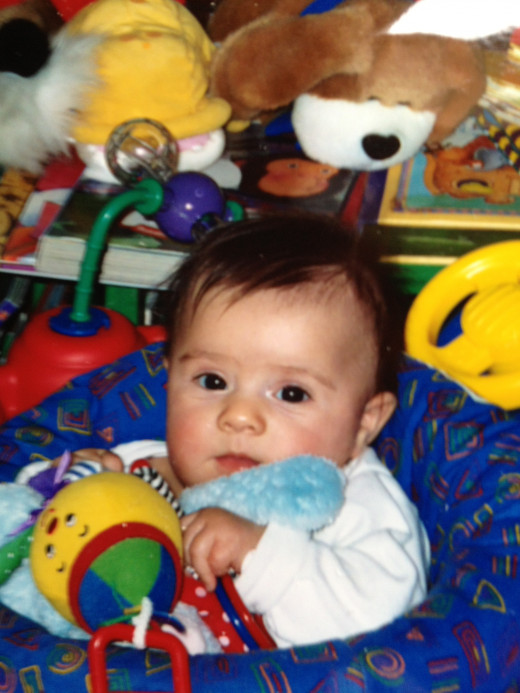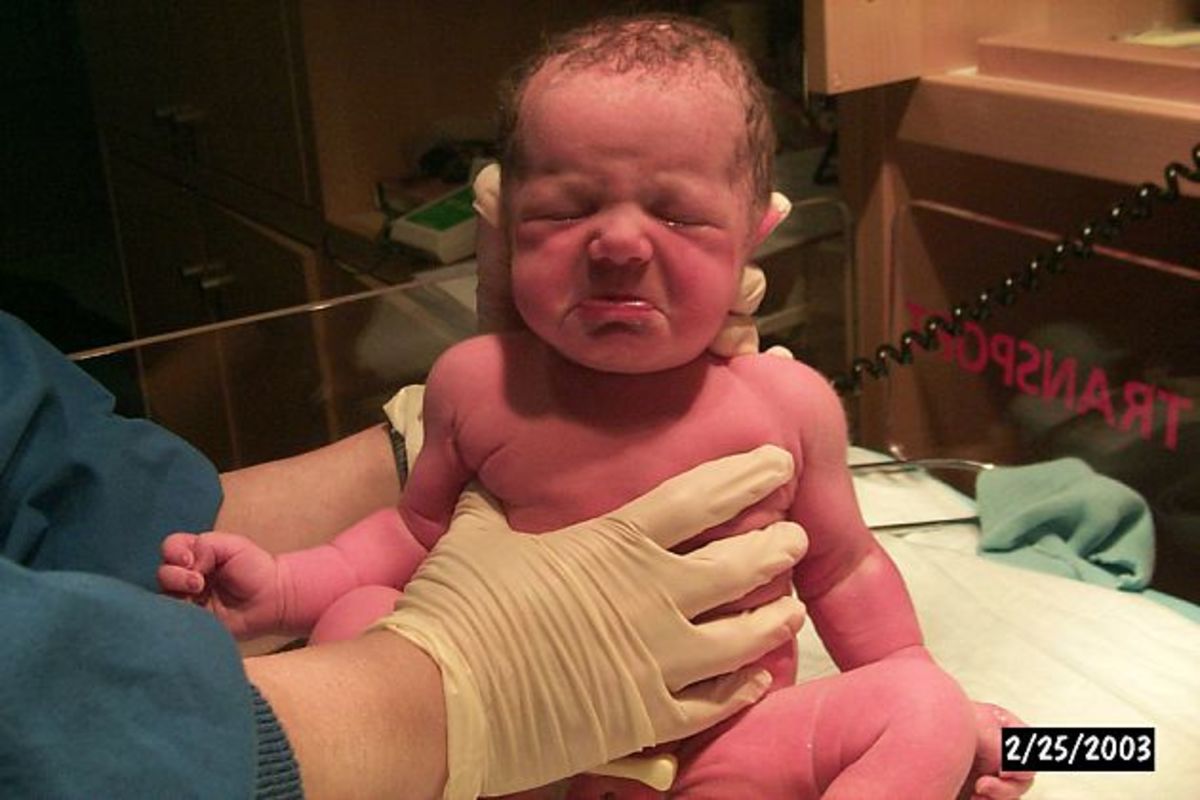How To Handle "I'm Bored" Statements
Are You Bored?

You've heard it before!
Nothing puts a parent on edge more than hearing their child state, "I'm bored." Moms especially feel responsible when they hear these words and want to fix the problem immediately. Often, a parent suggests they go clean their room, or help with a household chore in order to force them to think of something to do on their own. And usually, this is met with moans, mumbling, and stamping of feet while walking away.
This summer when my grandchildren were visiting we spent time swimming, touring museums, eating out, shopping and going to the beach. We were highly active a good majority of the time they stayed with us, but there were a couple of let's-stay-at-home evenings, when we heard, "I'm bored", followed by sighs. This was followed by a discussion on available options of engagement such as reading one of the library books we picked up, making a tent, or helping to sort and count pennies. Fortunately, they are pretty resourceful and know what to do when they are bored.
The cartoonist, Saul Steinberg, is quoted as saying, "The life of the creative man is lead, directed and controlled by boredom. Avoiding boredom is one of our most important purposes." Boredom can lead to creativity in a child and exploration of how they think. If guided well, children can learn to use this empty or unstructured space of time to imagine, invent, and discover the world around them.
Fight the Boredom With These Ideas!
Disconnect Technology: Make Space For Boredom!
Does Technology Program Kids For Boredom?
It starts when they are just wee infants, mom or dad pops in a video while making dinner, working on the computer, or chatting with someone to keep a child engaged and busy. This activity sets a pattern for future responses to a child's play or work time. Another common recommendation for older children is to suggest they watch their favorite TV show or play on the computer (now it's the ipod or ipad) while mom or dad finishes a task.
This type of learned behaviour conditions children to resort to electronic entertainment in response to unstructured play time or gaps of inactivity. The use of these technological methods to fill time prevents children from developing crucial cognitive and social skills through creative play. As a result, they fail to think creatively, or to draw from within themselves for ideas on how to fill time.
Some studies show that electronic games have increased dopamine levels in the brain affecting the level of enjoyment children have in other activities such as riding a bike or reading a book. Dopamine is a chemical neurotransmitter affecting movement and pleasure. It can improve overall enjoyment of living and prevent negative emotions leading to depression. However, when dopamine is rewarded in the brain through electronic entertainment, real life situations dull in comparison. Thus, we have a generation of children who are easily bored when forced to find non-electronic activities for self-directed play or enjoyment.
The American Medical Association suggests parents limit children to two hours of electronic time a day. This includes TV, ipods, ipads, e-reading devices, videos, and computers. Allowing children to engage in technology devices longer than this may cause inability to focus on simple every day learning activities.
Interesting Book
How Do You Handle A Child's Boredom?
As mentioned earlier, parents tend to see a red flag when they hear a child is bored. It may be so in some children, especially if they have special needs; however, in most cases the statement is simply expressing a need for ideas on play activities.
You may be in the middle of something really important, but take time to drop what you are doing and chat with your child for a few minutes. Make some suggestions on possible activities they would enjoy. Sometimes this is all they need.
If this doesn't work, ask them to join you in your task (give them something age appropriate to do), or say, "give me fifteen minutes" and I'll be free to play awhile with you. That fifteen minutes may just lead to some interesting self-directed activity that will solve the problem for your child.
Other times, they return in fifteen minutes! What to do? Perhaps taking a half hour to read a book together, take a walk, or play a game will supply your child with the attention needed, and time to regain focus on other possible activities.
Then there are the times when even this does not work and a parent is at a loss of what to suggest. I encourage parents to make an Activity Box in these circumstances:
- Decorate a shoebox with stickers, colorful drawings, glitter.
- Cut a hole in the top of the box cover wide enough for a child's hand to reach through.
- Write suggestions for play activities on slips of colorful paper and put them inside the box.
- Let your child pull one from the box.
- As a challenge, give them a time frame for completing the activity. (If they are really engaged in the acitivity, don't stop them, let them play!)
- When they are done, give them a praise and hug. (Reward them occasionally with a small treat.)
Activity Box Suggestions
Writing/Drawing Activities
| Indoor Activities
| Outdoor Activities
|
|---|---|---|
Draw pictures
| Make a tent in the living room
| Practice short and long jumps, measure the distance each time.
|
Write riddles
| Put on some wild & crazy music: dance
| Lay on a blanket outside and find cloud pictures
|
Write someone a card or letter
| Make a costume for your pet
| Collect rocks, leaves, flowers, etc. and make a collage
|
Draw a treasure map: hide a small prize for the winner
| Make a house or car out of a large cardboard box
| Have a chalk drawing contest on the sidewalk with a friend
|
Write a story with two different endings
| Have a parade with your toys
| Find interesting bugs, follow an ant to its home
|
How Do You Handle Boredom?
What is your favorite activity when you are bored?
Even Infants Express Boredom

Teaching Children How To Handle Boredom
Growing up in a large family has its advantages; there is always something interesting to do. I had seven siblings and we spent hours playing kickball, volleyball, jump rope and other such outdoor games. We also enjoyed walking as a group to the library or to the park to play. We were always busy! As a result, I learned to value solitude and enjoy leisure time to just sit and read a book or watch a movie. Boredom is a welcome opportunity to me!
I like to refer to this as self-enjoyment. Being in this state of mind allows you to produce positive leisure activities that bring satisfaction to our lives and prevents the onset of boredom. If children are not helped to realize this self-enjoyment, when they reach adulthood they may result to negative habits such as drugs, depression, and lack good social skills.
Here are some suggestions for helping a child to overcome boredom on their own. After all, this is what you want to encourage because it leads to creativity and connection to real world events.
- Reflect upon your child's play activities, make positive comments on their play experience. Saying things like, "you are really enjoying yourself with that game.", helps them to understand what it feels like to have a good time. This is important in judging times of boredom as it leads to finding creative ways to increase personal enjoyment.
- Allow your child time to experience boredom. What happens when there is a pause? Parents can plan ahead for these times by providing playthings in their room, quiet areas for reading, outdoor equipment that is safe and enjoyable, and an Activity Box as described above.
- As they play, they will begin to comprehend what makes them happy. Perhaps it is the activity itself or the friends they are with that make it fun. This is important in developing play that leads to self-fulfillment.
- Once a child discovers what makes him or her happy, they can create activities that complete their enjoyment and prevent boredom that is detrimental to their emotional well-being.
Boredom can be a good thing. It gives a child time to figure out what they enjoy, what they like to do, and what they do not enjoy. It challenges them to think creatively. As George H. W. Bush once said, "What's wrong with being a boring kind of guy?" Creativity is a sign of stability, inventive thinking, and leadership and those are very good traits for a child to own!





